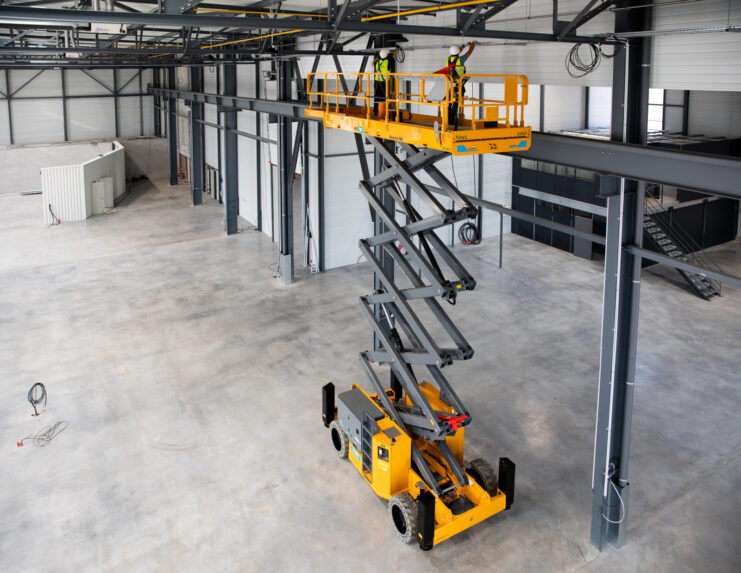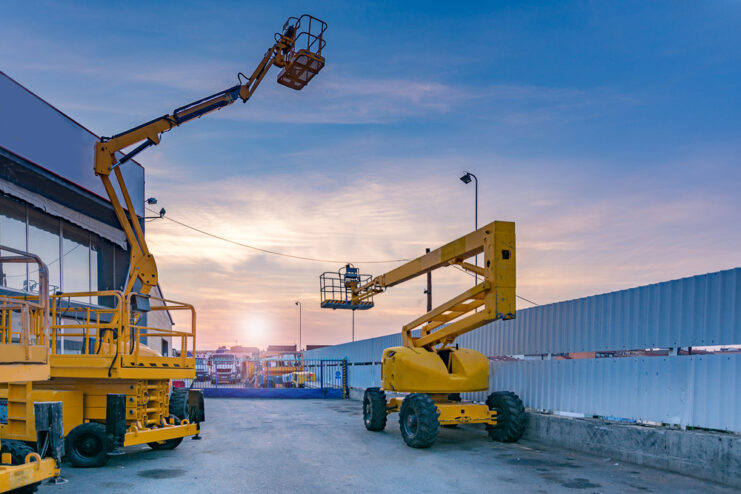As the construction industry evolves, so too does the technology that powers it. Among the most promising developments is the adoption of fully electric access equipment. This shift not only aligns with global sustainability goals but also offers numerous operational benefits, making it a key focus for forward-thinking companies. The transition to electric technology reflects a broader commitment to innovation and sustainability that is increasingly demanded by clients, governments, and the public.
By integrating fully electric machinery into their operations, construction companies are not only reducing their environmental impact but are also enhancing efficiency and cutting long-term costs. This evolution towards electric equipment is part of a wider trend in the industry towards automation and smarter, cleaner technologies that promise to reshape how construction tasks are approached.
To explore how these technologies can transform your projects and align with modern construction demands, visit CPSLift for more insights. Now, let’s uncover the multifaceted advantages that fully electric access equipment brings to construction sites.
Clean Air, Clear Conscience: Why Go Electric?

First off, electric equipment is a breath of fresh air—literally! Since it runs on electricity instead of gas or diesel, it emits no harmful pollutants. This is especially crucial in urban areas teeming with life and activity. By adopting this type of gear, construction sites can meet stringent air quality regulations and showcase their commitment to environmental stewardship. The reduction in pollutants significantly contributes to improving urban air quality, providing healthier living conditions for city dwellers.
Electric machines represent a key solution in the battle against urban pollution, helping to transform construction sites from being part of the problem to a part of the clean air solution. Moreover, as cities continue to grow and become denser, the role of electric construction equipment in maintaining and improving air quality will only become more essential.
More Money in Your Pocket: The Economic Sense of Going Electric
Think about the long-term savings, too. It’s true, that electric tools might feel pricier initially. However, the real savings begin when you consider the operational costs. Forget about fuel expenses—electricity is cheaper, and these machines require fewer repairs due to their simpler mechanics. Over time, this type of equipment offers substantial financial benefits.
These savings are amplified by the lower cost of maintenance, as electric motors are less complex than traditional engines and have fewer parts that could fail. By significantly reducing the frequency and cost of repairs, this equipment ensures a lower total cost of ownership and a higher return on investment. Additionally, the predictability of electric energy costs compared to the volatility of oil prices provides financial stability and easier budget management for construction firms.
Get More Done: How Electric Boosts Productivity
Electric equipment also turbocharges productivity. Its motors power up tools quickly and operate smoothly, slashing the time it takes to complete tasks. Moreover, because electric tools are less prone to breakdowns, your team can spend more time working and less time in downtime. Keeping projects on track has never been easier!
The precise control offered by electric motors allows for more accurate and efficient operation, which is particularly beneficial in delicate or precision-required tasks. This efficiency not only speeds up project timelines but also reduces the need for rework, enhancing overall project quality. The ability to work longer hours with less noise and no emissions extends the possible workday in noise-sensitive areas and increases the flexibility in scheduling work.
A Safer Work Environment? Electric Delivers!

Safety on site takes a giant leap forward with electric tools. Without the toxic fumes from diesel exhaust, the air is cleaner, making it healthier for everyone around. The quiet nature of electric machinery enhances on-site communication too, reducing accidents. Plus, less noise pollution means happier neighbors—a win for community relations! The reduction in vibration and engine heat also contributes to a more comfortable and safer working environment. These factors help reduce worker fatigue and the likelihood of heat-related illnesses, which are common problems in construction sites using conventional diesel-powered equipment.
Depend on It: The Reliability of Electric Equipment
The reliability of electric motors can’t be overstated. With fewer components to wear out, these tools are built to last and require minimal maintenance. This reliability means equipment is ready when you need it, ensuring that tool failure doesn’t slow you down. Electric equipment’s consistent performance and lower likelihood of unexpected breakdowns provide peace of mind for project managers and contractors alike. This reliability also means that projects can be planned more accurately, without having to allot extra time for equipment failures, leading to more predictable project outcomes.
Lead the Charge: Why Being an Early Adopter Pays Off

Adopting electric equipment positions companies as pioneers in innovation and environmental responsibility. Clients appreciate partners who invest in cutting-edge, sustainable solutions. Furthermore, preparing for future regulations that will likely favor green technologies puts you ahead of the curve. This proactive approach not only prepares companies for upcoming changes in regulations but also enhances their competitive edge in a market that increasingly values sustainability. Being seen as a leader in adopting green technologies can also help attract and retain top talent who are eager to work with innovative and environmentally conscious equipment.
Electric Equipment—The Smart, Sustainable Choice
Electric construction equipment offers myriad benefits that extend well beyond environmental contributions. From cost savings and enhanced productivity to improved safety and reliability, the advantages of going electric are clear. As the construction industry places a greater emphasis on sustainability, those who embrace electric technology will be well-prepared for the future. This movement is about more than just compliance; it’s about leading the way to a greener, more efficient future.
If you’re considering making the switch to electric tools, now’s the time to ride the wave of change! With the construction industry on the brink of a technological revolution, adopting electric equipment is not just a smart choice—it’s an essential step toward future-proofing your operations and staying competitive in a rapidly evolving market.












